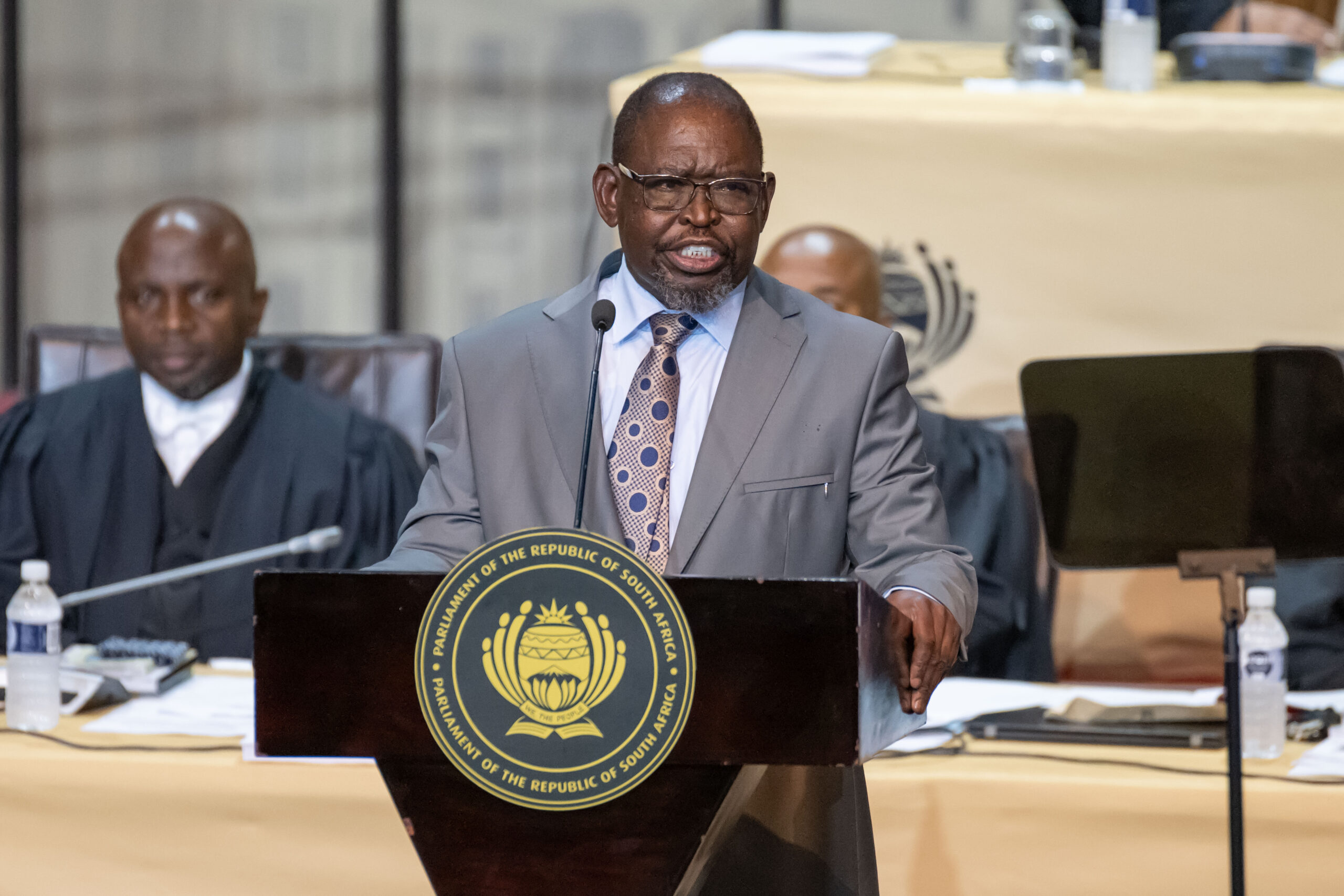South Africa’s Finance Minister Enoch Godongwana delivered a revised version of the 2025 Budget Speech in Parliament on Wednesday, the third iteration this year, following internal disputes over a controversial proposal to raise the country’s Value Added Tax (VAT).
The speech comes after weeks of political wrangling within the recently formed Government of National Unity (GNU), a coalition established after South Africa’s 2024 general elections resulted in no clear majority. The proposed 2%-point VAT increase, which would have raised the rate from 15% to 17%, became a major flashpoint among coalition partners, with many warning it would worsen the financial strain on consumers already battling high unemployment and inflation.
“It is unsurprising then that the increase to Value Added Tax (VAT) proposed on March 12 created so much debate… There is clarity now: VAT will remain at 15%… The reality, however, is that the decision to do away with the VAT increase, without a viable alternative source of revenue, significantly reduced our ability to fund additional government programmes and projects to the extent we had deemed necessary,” Godongwana told lawmakers on Wednesday.
The updated budget reflects a more conservative outlook, factoring in weaker-than-expected economic performance and a R62 billion ($3.45 billion) revenue shortfall over the next three years. In response, Treasury will implement R69.4 billion ($3.86 billion) in spending cuts across key government departments, including education, health, home affairs, and the struggling state logistics company, Transnet.
The slower growth will also result in South Africa’s debt-to-gross domestic product (GDP) ratio peaking at 77.4% in the fiscal year through March 2025.
Loading...
“Without revenues from a VAT hike, some of the additional spending proposed in the first two attempted Budgets will be rolled back. Nonetheless, there is still a R180 billion [$10 billion] increase to the baseline over the medium term, compared to R233 billion [$12.98 billion] in Budget 2.0. This will support frontline delivery and infrastructure spending. Treasury plans to spend R1 trillion on infrastructure over the medium term. This a big number, but implementation will be key,” says Old Mutual Wealth Investment Strategist, Izak Odendaal, in a statement.
Other points in the speech include the allocation of R284.8 billion ($15.87 billion) for social grants in 2025/26, and inflationary increases in the general fuel levy for petrol and diesel to R4.01c/l and R3.85c/l, respectively, effective from June 4.
Eliphas Ndou, economist and author in the Department of Economics at University of South Africa (UNISA), comments to FORBES AFRICA: “The increase in the general fuel levy can be offset by lower oil prices, thereby shielding consumers from this adjustment in the fuel levy. I hope the lower oil price persists for a long time, as projected by the IMF in the April World Economic Outlook, as well as Saudi Arabia increasing volumes of oil production.”
“The budget still supports the economically vulnerable groups, such as old age grant recipients and Covid-19 social relief assistance for another year. This supports the government’s commitment to reducing inequality and improving living conditions,” he adds.
Godongwana said the focus now is on three key priorities. “Balancing the budget through spending efficiencies, strengthening revenue collection, and giving expression to the Medium-Term Development Plan. This undertaking is not insurmountable if we work together, stay focused, and persevere to chart a better course for our economy and our people.’’
Loading...
